O lone Ravenna! many a tale is told
Of thy great glories in the days of old:
Two thousand years have passed since thou didst see
Casar ride forth to royal victory.
Mighty thy name when Rome’s lean eagles flew
From Britain’s isles to far Euphrates blue;
And of the peoples thou wast noble queen,
Till in thy streets the Goth and Hun were seen.
Discrowned by man, deserted by the sea,
Thou sleepest, rocked in lonely misery!
No longer now upon thy swelling tide,
Pine-forest-like, thy myriad galleys ride!
For where the brass-beaked ships were wont to float,
The weary shepherd pipes his mournful note;
And the white sheep are free to come and go
Where Adria’s purple waters used to flow. ( Oscar Wilde, Ravenna )
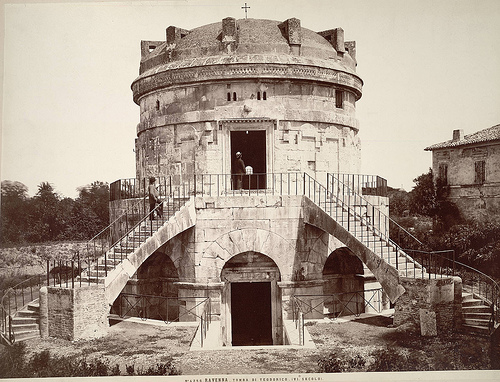
The Mausoleum of Theodoric was "built c. 520 in Ravenna, Italy, by the Arian Ostrogothic emperor Theodoric. The lower story is a decagon, while the upper story is circular and roofed with a remarkable monolithic dome 36 feet (11 metres) in diameter made of limestone imported from Istria. When Ravenna was captured by the Catholic Belisarius in 540 the bones of Theodoric were scattered and the mausoleum converted into the church of Sta. Maria della Rotonda. The facade and portico were rebuilt in the 16th century." Source: Encyclopedia Britannica.
After some difficulty with the Romans, Walamar and his Goths were hired, for three hundred pounds of gold a year, to guard the borders of the empire. As assurance that they themselves would keep the peace, the king’s nephew, Theodoric, then eight years old, was taken to Constantinople as a hostage. A handsome and intelligent boy, he became a favorite of the emperor Leo. Theodoric enjoyed all the benefits of Roman education and observed the techniques of Roman government during his most impressionable years. At the age of eighteen he returned home to his father, Theudemer, who had succeeded Walamar on the throne.
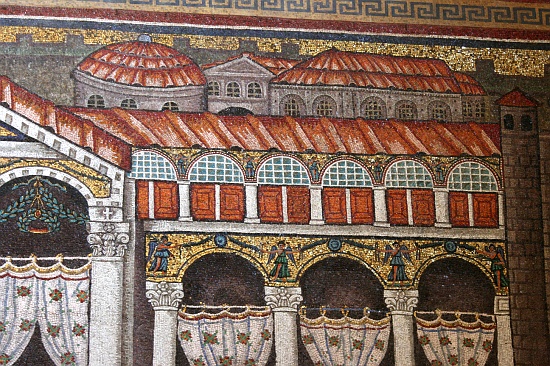
Detail of mosaic depicting the city of Ravenna and the Palace of Theodoric (foreground) in c.500 AD. Sant'Apollinare Nuovo, Ravenna.
Theudemer died in 473, and Theoderic became king of the Ostrogoths. By this time the Romans had assigned land in Macedonia to the restive Ostrogoths. When the emperor Zeno was briefly expelled from Constantinople by a rebellion, Theodoric and his Goths supported him and assisted his return to office. Theodoric’s rewards were the high sounding title of patrician, the post of commanding general in the imperial army, and a lavish subsidy. Zeno, moreover, adopted him as his son, an act that implied he might someday succeed to the Imperial throne. Zeno himself, after all, was by birth a barbarian from Isauria in Asia Minor.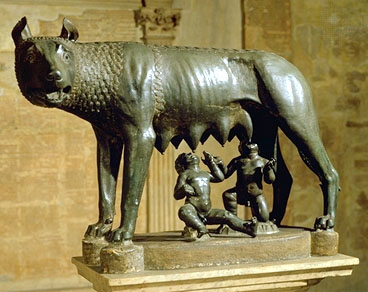
In spite of this honor and subsequent distinctions; a consulship, a triumph, an equestrian statue in Constantinople, Theodoric’s relationship with Zeno underwent many fluctuations. The emperor could not help but regard him as a dangerous rival who was too successfully gathering around himself the scattered Gothic troops of the Eastern Empire. In 488, after a dangerous clash in which Theoderic’s troops blockaded Constantinople for a time, Zeno got rid of him by sending him to Italy to drive out the German usurper Odovacar, who twelve years before had deposed Romulus Augutulus, the last Roman Emperor of the West.
Ostrogoths were probably a minority in the multinational army that Theodoric assembled at Novae, in what is now Bulgaria, and he commanded it in his capacity of Roman general rather than Ostrogothic king. There were a strong contingent of Rugians and the usual motley array of barbarians from many different tribes. But Theodoric had the qualities of leadership necessary to hold the disparate elements together during a slow march of almost a year from Bulgaria to Italy.
”Nepos was supposed to bring peace and order to the capital of the Western Empire, which was then at Ravenna, Italy, and boy, did he ever screw that up. He started out badly by not killing Glycerius. Instead Nepo took him prisoner and shipped him off to Salona, the largest port back in Dalmatia. There he figured his spies could keep an eye on Glycerius, since he also had him ordained as a Bishop, giving him a steady income. Nepos was assuming, I guess, that this act of charity would win Glycerius’ loyalty. But, as they say in the Emperor business; “No good deed goes unpunished”….Caesar Augustus (him again) had established the port of Ravenna in the first century B.C. as the home for the Roman fleet. By the fourth century A.D., with the barbarians carrying off half the Roman forum in a fire sale, the capital had been moved first to Milan, and then to this port because Ravenna was surrounded by swamps and marshes, which offered protection from the invading hordes, of which there were plenty around at the time.”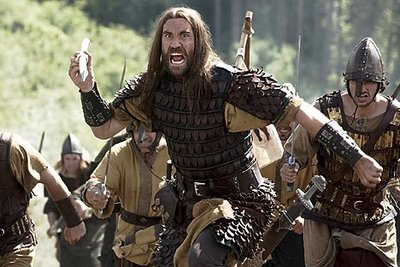
The conquest of Italy proceeded rapidly, although Odovacar held out in virtually impregnable Ravenna after Theodoric had seized the rest of the peninsula. Imperial naval forces blockaded Ravenna from the sea while Theodoric,s army kept it surrounded on land. Nevertheless, the siege lasted four years, and even then, Odovacar was strong enough to extract from Theodoric an agreement to divide the sovereignty of Italy. Theodoric honored the agreement for exactly ten days. On the ides of march, 493, he invited his co-regent to a palace banquet and assassinated him.
t">''I suspect it was she who explained to Orestes what Nepos was really up to, i.e. getting the Germans out of Italy and away from the center of power. Wives have a way of pointing out to their husbands when they are being particularly dense. Anyway, it was probably she who suggested that Orestes should offer the Germans their own villas and farms in Italy, which could be stolen from the Roman patricians who currently owned them. So he did.''



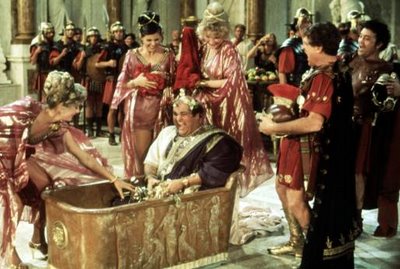


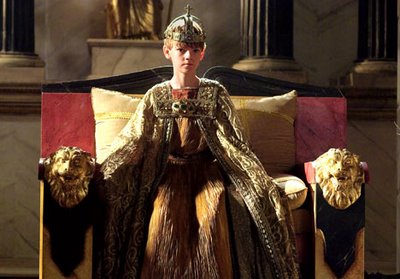




 COMMENTS
COMMENTS




Great article, but you’ve mislabeled the picture of Dom DeLuise in the tub. That’s from Mel Brooks’ History of the World, not Fall of the Roman Empire.
thanks for the corrective!